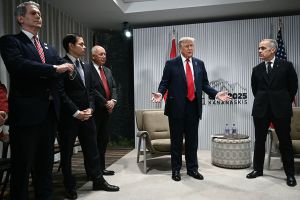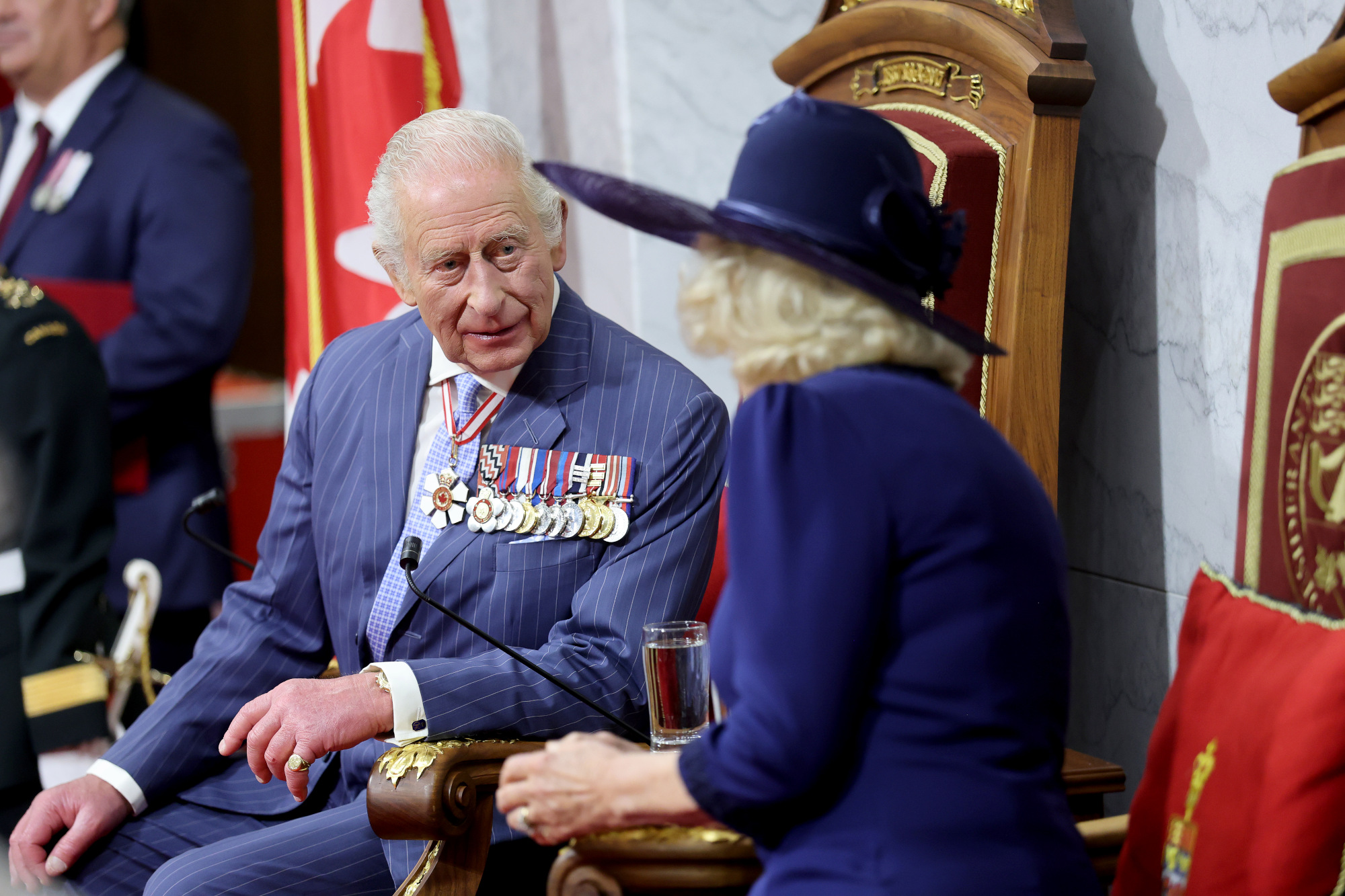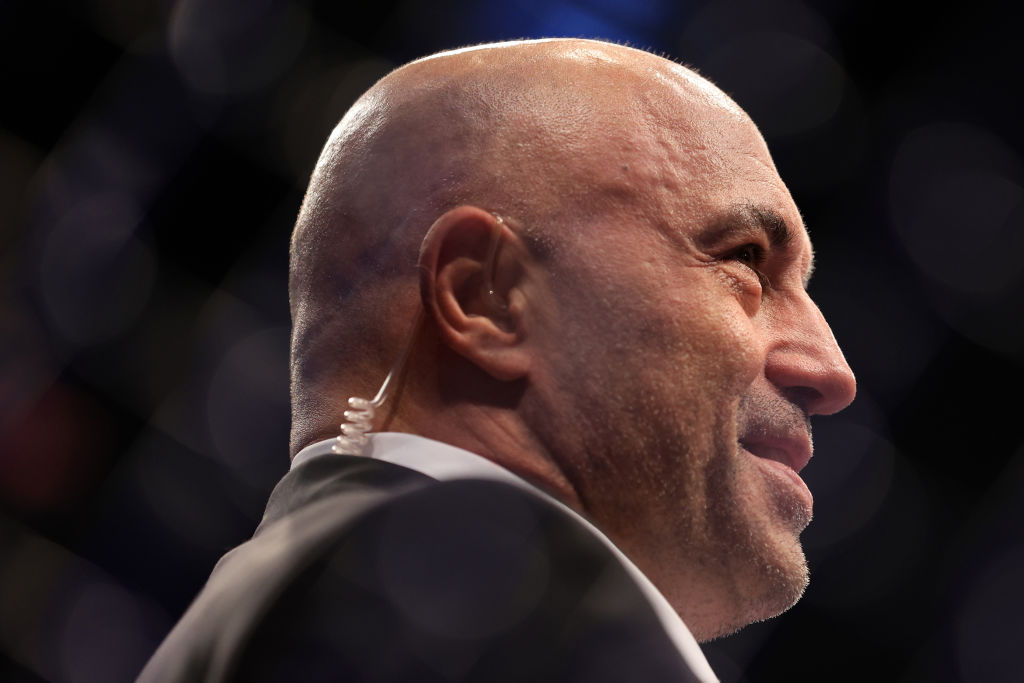I’ve noticed a pattern over the past few years.
We saw it when Joker made over a billion dollars at the box office, despite numerous reviews and think pieces assuring us that everyone who enjoyed it was a dangerous alt-right incel.
We saw it most clearly in 2016 and again in 2020 when the tens of millions of Americans who voted for Donald Trump were uniformly smeared as white supremacists. To suggest any other motive was unacceptable. Racists! All of them!
We saw it twice in the past week.
The first of those instances is related to the ongoing Freedom Convoy protest in Canada. More on that later.
The other was when we were subjected to yet another round of opinion pieces that painted Joe Rogan and his listeners — who, like Trump’s voters, number in the tens of millions — as a bunch of right-wing crazies.
This is especially insane since, as I argued a few weeks ago, Joe Rogan is almost uncannily representative of the median American male. He idolizes entrepreneurs but doesn’t trust big corporations. He likes smoking weed. He enjoys MMA fights. He’s not particularly interested in organized religion. Big Tarantino fan. Slightly crass sense of humor. Live-and-let-live on social issues but uncomfortable with the whole trans kids thing. Open to discussing almost anything with almost anyone.
That, for many of Rogan’s critics, is his most dangerous quality: he sees nothing wrong with talking to Bernie Sanders, Ben Shapiro, and even Alex Jones. It’s because of his catholicity that he must be dismissed. Anyone who refuses to remain within the manufactured consensus of acceptable discourse is a threat.
Any “mainstream” must, by definition, keep out certain “fringe” ideas that it considers unacceptable. But it can’t be a true “mainstream” unless it can accommodate the actual beliefs that most people hold. The less policing “mainstream” institutions have to do, the more stable and authentic that “mainstream” is.
There’s a paradox here. The arbiters of the “mainstream” are full-time gatekeepers. It’s the ones (like Rogan) who do the least gate-keeping that must be gate-kept out. Anyone who holds unacceptable opinions on, say, Covid-19 or transgenderism or racial quotas is “fringe,” and anyone who breaks bread with such people is “fringe” by association. You end up with a barely inhabited Potemkin village of a “mainstream” and a “fringe” that comprises the majority of the population.
When your “fringe” has gotten that big, it’s probably time to get a new carpet.
Of course, there are those who revel in being “fringe.” That’s what the whole dust-up over who owns the word “based” was about. “Based” originally described someone acting erratically on the sidewalk under the influence of crack cocaine. Now it describes someone who holds reactionary political views.
The two aren’t contradictory. In Western, especially Judeo-Christian, culture, the marginal figure is often the source of the greatest wisdom. It’s Diogenes carrying a lantern in broad daylight, Ezekiel cooking bread over a dung fire, and (ultimately) Christ on the cross. The prophetic tradition lays out a pattern in which the edge becomes the center.
In a talk that he gave on “The Religious Nature of the City,” theology professor and postliberal Chad Pecknold pointed out that “[a]bsurd things which were thought up in dorm rooms by a tiny minority of transgressive postmodernists in the 1970s are now federal laws which determine everyday life for ordinary Americans.”
Instead of raging against this development as undemocratic, Pecknold takes it as a model. If the fringe radical queer theorists can hijack American culture and government, why can’t the fringe Catholic integralists do the same?
Marginality — being “fringe” or “based” — becomes an invigorating emblem of standing for truth in the midst of a cringe and soypilled generation. Embracing that label also serves as a reminder that the entire fringe/mainstream dichotomy is artificial and therefore malleable.
Which brings me to the Canadian trucker convoy.
Prime Minister Justin Trudeau — who, unlike James II and VII, has managed to flee without effectively abdicating — said the convoy was made up of a “small fringe” holding “unacceptable views.” In response, the protesters adopted “We the Fringe” as their slogan.
Of course, we don’t actually know how “fringe” the trucker protest is. Solid estimates of the numbers of trucks and people involved are hard to come by. I also can’t find a decent poll on how many Canadians actually back the Freedom Convoy, though the absence of polling suggests that the people who commission and conduct polls are afraid they might not like the results.
The closest thing to a poll I managed to locate was a non-scientific survey (it seems like you can vote as many times as you want if you keep hitting “refresh”) on the website of a small-town Canadian newspaper called the Huntsville Forester. Over 32,000 respondents expressed unequivocal support for the convoy. Fewer than 20,000 said demonstrators should stop protesting and get vaccinated.
Huntsville only has a population of about 20,000, so either residents are casting multiple ballots or outsiders are voting (I myself voted three times). But Huntsville itself isn’t some bastion of right-wing extremism. The town voted Conservative in the 2019 general election only because Liberal, Green, and New Democratic candidates split the left-of-center vote.
Once again, the “fringe” has gotten too big for the Potemkin mainstream to dismiss.
The only problem is that this fake mainstream still controls the means of cultural production and will make full use of them to push a false consciousness of what constitutes normalcy.
If we’re sticking with Canada, the best example I can think of is the show Letterkenny.
Letterkenny is a great show. It focuses on the various inhabitants of a rural Canadian town, including Wayne, who owns a small farm; his sister, Katy; and his friends Daryl and Squirrely Dan.
The characters spend a lot of time sitting around without much to do. They ruminate at length on various topics, ranging from the trivial to the sophomoric. When somebody makes a good joke, it doesn’t end there. His buddies chime in with their own elaborations or variations, falling into a rhythmic patter and riffing off each other until they’ve run out of things to say.
The effect is one of wholesome, even bucolic, rural community life.
Wayne and his buddies are unapologetically working-class. They’re terse and stoic. They drink heavily and think farts are funny. They fight a lot (though no one ever seems to get seriously hurt). They deliver long discourses on the importance of hard work and the ins and outs of DIY automotive maintenance. They even refer to Joe Rogan as a “great guy” and name-drop Jordan Peterson once.
Yet these salt-of-the-earth characters just happen to agree with mainstream progressive dogma on virtually every important topic. Sometimes, it’s a simple one liner. Wayne gets a girl pregnant. The next episode, she tells him she’s had an abortion. Well, he says, “that’s your right.” The idea that anyone might have a different opinion about such a thing isn’t even entertained.
Other times, it’s there in the background. There’s a recurring bit in which Squirrely Dan takes night classes in women’s studies, and his occasional references to feminist theory tend to be presented positively.
Religion is absent from the show except for a few local Mennonites and the flamingly gay Pastor Glen, who partway through the series cuts ties with his ultra-liberal denomination to become a bartender. One couple’s open marriage is portrayed sympathetically. Wayne beats up anybody who calls Katy a slut even though Katy objectively is a slut.
The most overtly political the show gets is in a season five episode in which Jay Baruchel guest stars as “Hard Right Jay.” Jay is an openly white nationalist out-of-towner who comes to Letterkenny clad in khakis and a white button-down shirt to protest a local sports team’s name change. He initially hails Wayne and his self-described hick friends as “the Alphas, the real men…the stewards of…traditional values, the silent majority” but quickly realizes they have no patience for his racist remarks and his very online ravings about cucks, chemtrails, and globalists.
I’m looking forward to seeing how, if at all, the characters react to the Freedom Convoy.
The episode ends with Wayne and company beating the alt-righters’ tiki torch-toting asses, but not because the hicks are progressives. They just don’t care, and certainly don’t appreciate a crankish outsider stirring up trouble over it. They’re apolitical.
Of course, in the fake mainstream, to be apolitical is to agree with the fake mainstream. They decide what normalcy, morality, and even sanity look like. Everything else is fringe.
Some people believe this lie and conform to it. Others perceive the lie and reject it. It’ll be interesting to see which group wins.

























